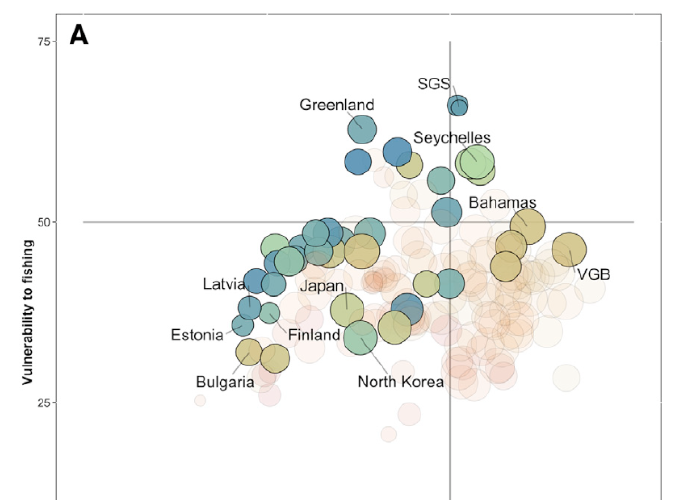
Micronutrient supply from global marine fisheries under climate change and overfishing

Micronutrient supply from global marine fisheries under climate change and overfishing
Fish are rich in bioavailable micronutrients, such as zinc and iron, deficiencies of which are a global food security concern.Global marine fisheries yields are threatened by climate change and overfishing, yet understanding of how these stressors affect the nutrients available from fisheries is lacking. Here, using global assessments of micronutrient content and fisheries catch data, we investigate how the vulnerability status of marine fish species may translate into vulnerability of micronutrient availability at scales of both individual species and entire fishery assemblages for 157 countries. We further quantify the micronutrient evenness of catches to identify countries where interventions can optimize micronutrient supply. Our global analysis, including >800 marine fish species, reveals that, at a species level, micronutrient availability and vulnerability to both climate change and overfishing varies greatly, with tropical species displaying a positive co-tolerance, indicating greater persistence to both stressors at a community level. Global fisheries catches had relatively low nutritional vulnerability to fishing. Catches with higher species richness tend to be nutrient dense and evenly distributed but are more vulnerable to climate change, with 40% of countries displaying high vulnerability. Countries with high prevalence of inadequate micronutrient intake tend to have the most nutrient-dense catches, but these same fisheries are highly vulnerable to climate change,with relatively lower capacity to adapt. Our analysis highlights the need to consolidate fisheries, climate, and food policies to secure the sustainable contribution of fish-derived micronutrients to food and nutrition security.